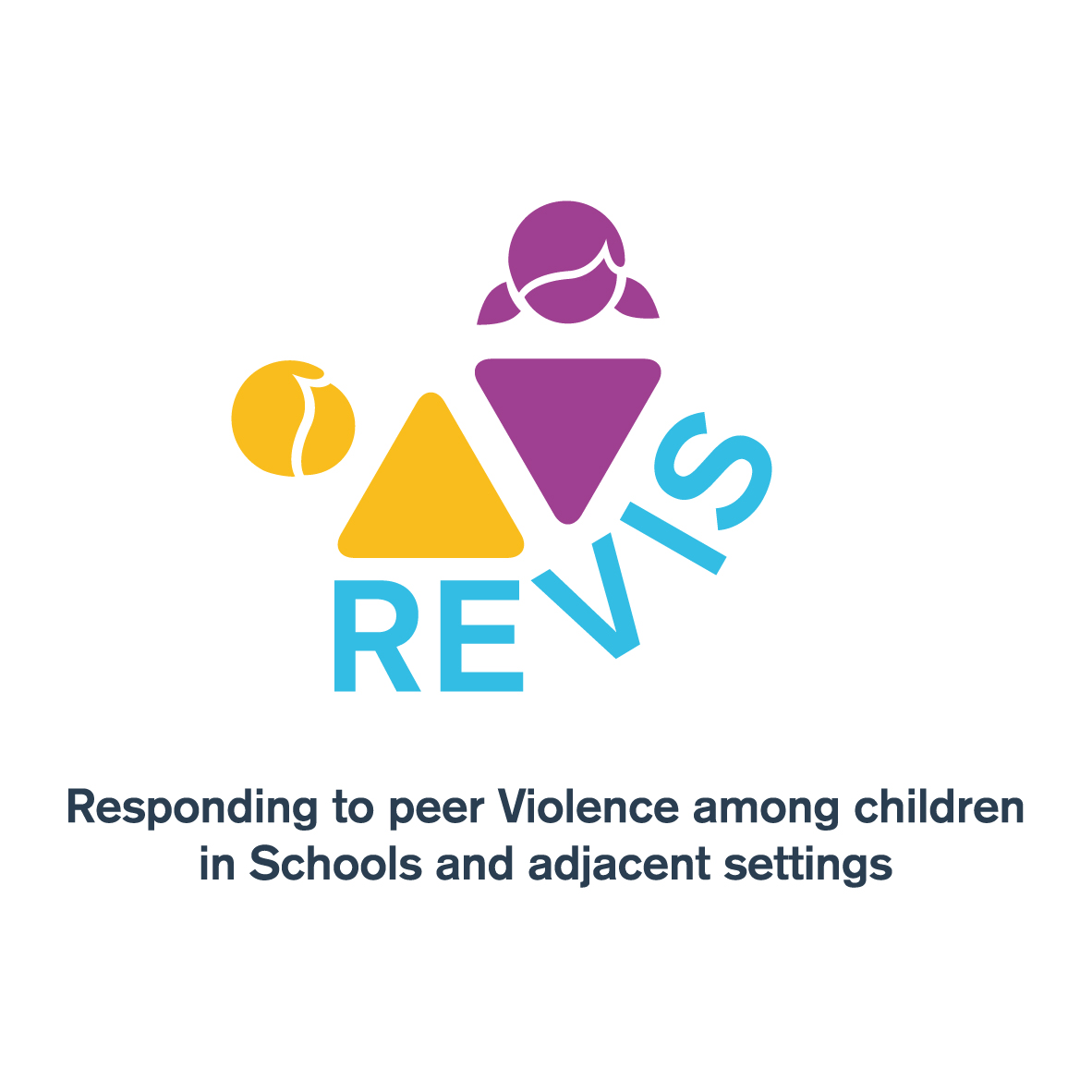 'We want new faces and new approaches to speak about violence in school.' – A quote from a child from Serbia, who participated in the 2020 regional research on violence against children, ChildHub project.
'We want new faces and new approaches to speak about violence in school.' – A quote from a child from Serbia, who participated in the 2020 regional research on violence against children, ChildHub project.
The REVIS project indeed responds to this need, as it aims to create new approaches on this topic.
The REVIS project began in January 2021, building strongly on the findings and recommendations of the aforementioned regional research. A Training Guide on Shifting Norms around Violence Against Children in Schools was developed by the International Institute for Child Rights and Development (IICRD) as part of a training curriculum, and a related Training of Trainers (ToT) event was held by the IICRD 14–25 June 2021, to train the participants to use the curriculum developed on Shifting Norms around Violence in Schools. The ToT was planned in person, but unfortunately, due to the pandemic situation it became an online event.
Prior to the training, a pool of trainers was created from the four project countries (Bulgaria, Croatia, Romania and Serbia): two trainers were identified by each project partner. Interested project staff also attended the ToT event. The selected trainers are experienced professionals with strong knowledge, skills and expertise in various fields related to the project topic, such as child protection, safeguarding vulnerable children and young people, pedagogy, psychology, training, consultancy, supervision, facilitating activities, coordinating projects for prevention of violence, protection of children from all forms of violence, conducting research on peer violence, etc. This knowledge and expertise, along with the professional, open and motivated attitude of the participants and the IICRD trainers made an intense exchange of experiences and mutual learning possible during the ToT.
Forming a future community of practice, after receiving training on the curriculum, the trainers will share their knowledge and skills with local facilitators (in total 80) in the four project countries. They will train the facilitators to lead children in specific activities that address harmful norms around violence in schools.
The Training of Trainers was designed to combine synchronous and asynchronous learning opportunities for trainers to engage collaboratively, and to allow time to critically reflect on their own lived experiences and relationship with these social and gender norms. The activities were designed to efficiently impart the knowledge and skills for delivering future training on Changing Norms around VAC in Schools Guide.
The Training Objectives were:
- To engage in reflective practice and enhance knowledge on social and gender norms around VAC in Schools;
- To develop familiarity with the Modules of the Changing Norms around VAC in Schools Guide;
- To develop skills and gain confidence to facilitate training using the Changing Norms around VAC in Schools Guide;
- To build a Community of Practice with participants to be able to support one another going forward.
The IICRD carried out a literature review and noted the lack of literature on facilitating children in changing social and gender norms. Hence, the REVIS approach is indeed innovative.
As violence is not a biological function, but a social function which requires context for understanding, the training addressed the topic of social and gender norms and how they are present in schools and educational settings.
The related activity and discussion led to the common conclusion that it seems much easier to collect harmful norms than positive ones. A key question emerged: do we see positive norms with an adults’ eye or from a child’s perspective? The REVIS project takes the approach that it is really up to children to explore what they consider positive or negative. Indeed, local facilitators are present in these activities to ensure that this is a space for children, and to ensure that everyone feels safe during the activities.
At the Training, an overview of the 'Shifting Norms around VAC in Schools Guide’ was presented by IICRD, and the modules of the Guide were reviewed and discussed at the training via various activities. The Guide was finalized by the IICRD after the ToT, taking into consideration the feedback and observations that arose at the ToT. The curriculum and the tools will need to be contextualized for the facilitators’ training in each country (e.g. by the age of the children, size of the group, gender of the children). The Guide will be available in Bulgarian, Croatian, Romanian and Serbian.
The participants facilitated activities from the Guide Modules, and after the facilitation activity, feedback was given by the participants and IICRD trainers on what went well and what can be improved. Through Role-Play scenarios, the participants had the chance via this activity to practice how to act in and respond to challenging situations (e.g. complaints, disengagement), which may arise during an activity with the facilitators or children.
During the training, the participants started to draft their own training agenda for the facilitators’ training in the four countries, based on the training agenda designed by IICRD. The IICRD trainers collected feedback from the future trainers on the preparation of the facilitators’ training, in order to build these into further development of the related E-Learning, and the concept design of the webinar series. IICRD will hold a series of 3 follow-up and refresher webinars to allow the trainers to interact with experts, to ask questions that arise after the ToT and e-course, in preparation of the facilitators’ training, and to provide support for coaching and mentoring.
The E-learning on Shifting Norms Around Violence in Schools targets the participants of the ToT and the facilitators, as well as teachers working with children. It contains knowledge on social and gender norm change and how to engage children to address harmful norms around violence. The E-learning will be available in Bulgarian, Croatian, Romanian and Serbian.
At the end of the ToT, feedback was collected, and the results of the evaluation were overall good. The training objectives were met.

Co-funded by the Rights, Equality and Citizenship Programme of the European Union (2014–2020)
- Войдите или зарегистрируйтесь, чтобы оставлять комментарии
- 357 просмотров





